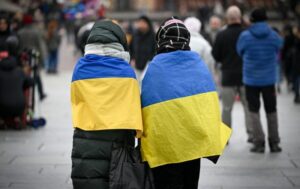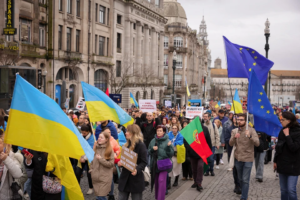
Citizens of Ukraine and Russia are among the top ten foreign buyers of housing in Bulgaria in 2024–2025, according to a study by the Experts Club analytical center and data from the Bulgarian Real Estate Association.
According to the study, the top 10 countries whose citizens are most active in buying real estate in Bulgaria are: Great Britain, Germany, Greece, Israel, Romania, Turkey, Italy, Russia, Ukraine, and Poland.
Foreigners account for a significant share of transactions in the housing market. According to one international analytical resource, the number of foreign buyers of residential real estate in Bulgaria in 2024-2025 has increased by approximately 18%, and the overall market is showing steady price growth. According to local experts, the percentage of foreigners in some coastal projects may reach 30% of the total number of buyers.
Foreign buyers are most interested in properties on the Black Sea coast – in Varna, Burgas, and Nessebar – as well as in the mountain resorts of Bansko and Pamporovo, where real estate is considered both for personal use and as an investment for rental.
Analysts note that Ukrainians have firmly established themselves in the top 10 due to a combination of relocation and investment demand: some buyers view Bulgaria as a safe EU jurisdiction during the war, while others see it as an opportunity to earn income from renting out property in tourist regions.
The growth in foreign demand is supporting price increases: over the past year, the cost of housing in Bulgarian seaside resorts has risen by an average of 8-10%, and in Sofia by 7-10%.
At the same time, according to estimates by the European Commission and a number of analytical reviews, housing in Bulgaria in 2025 is overvalued by approximately 10-15% relative to fundamental indicators, but experts are not yet talking about a critical “bubble” in the market.
In the next 2–3 years, Experts Club analysts expect foreigners to keep showing interest in Bulgarian real estate, but with a change in the demand structure: they estimate that the share of buyers from the EU, Ukraine, and Israel will grow, while the role of Russian buyers in new deals may continue to decline amid sanctions and capital movement restrictions.
According to data from the National Statistical Institute of Bulgaria and international reviews, in the second half of 2024, housing prices in the country rose by 15% year-on-year and by 87% compared to 2015. At the same time, the average price per square meter in the country remains significantly lower than in most EU countries, making Bulgaria one of the most affordable real estate markets in the Union for foreign investors.
Russian citizens traditionally account for a significant share of owners, especially on the coast. According to Bulgarian sources, in the Burgas region alone, more than 5,200 properties owned by Russians are officially registered, while across the country as a whole, there are several tens of thousands of properties. At the same time, in recent years, the share of new purchases by Russians has been declining, and some of the properties are being put on the market and bought by Bulgarian and Western European buyers.
Source: https://expertsclub.eu/rynok-zhytla-bolgariyi-analiz-vid-experts-club/

According to the Turkish Statistical Institute (TÜİK), in September 2025, sales of real estate to foreigners in Turkey fell by 7.7% year-on-year to 1,867 properties. The share of transactions with foreigners in the total volume was 1.2%. Most purchases were made in Istanbul (744), followed by Antalya (557) and Mersin (124).
Among foreign buyers, Russians took first place with 267 properties, followed by Iranians with 202 and Iraqis with 146. The top five also included citizens of Germany with 121 and Ukraine with 118. In January-September, foreigners purchased 14,944 properties, which is 12.6% less than a year earlier.
A total of 150,657 residential units were sold on the Turkish market in September, which is 6.9% more than in September 2024.

In September 2025, EU countries adopted 79,205 new decisions to grant temporary protection to non-EU citizens who fled Ukraine as a result of Russian aggression, which is 49% more than in August 2025 and is the highest monthly average of new decisions recorded since August 2023.
“This increase came after the Ukrainian government adopted a decree at the end of August 2025 granting men aged 18 to 22 inclusive the right to leave Ukraine without hindrance,” Eurostat reported on its website on Monday.
According to its data, compared to the end of August 2025, the total number of people from Ukraine under temporary protection increased by 49,560 (+1.2%) to 4,302,160 at the end of September.
In its statistics for August, the agency reported a higher total figure of 4,373,460, but this included data from Portugal and Luxembourg, where there were 65,120 and 3,880 refugees from Ukraine with the corresponding status, respectively.
It is noted that in September, according to available data, the number of people under temporary protection increased in 24 EU countries. The largest absolute increase was recorded in Poland (+12,960; +1.3%), Germany (+7,585; +0.6%) and the Czech Republic (+3,455; +0.9%), while the only decrease was in France (-240; -0.4%).
According to Eurostat data, Germany remains the country with the largest number of refugees from Ukraine in the EU and the world – 1 million 218.1 thousand, or 28.3% of the total number of beneficiaries in the EU.
The top three also include Poland with 1 million 8,890, or 23.5%, and the Czech Republic with 389,310, or 9.0%. Spain with 244,170 and Romania with 192,840 follow with a significant gap.
Eurostat clarified that the data for Spain, Greece, and Cyprus includes some people whose temporary protection status is no longer valid.
According to the agency’s data, compared to the population of each EU member state, the highest number of temporary protection beneficiaries per thousand people at the end of September 2025 was observed in the Czech Republic (35.7), Poland (27.6), and Latvia (25.5), while the corresponding figure at the EU level is 9.6.
It is also noted that as of the end of September 2025, Ukrainian citizens accounted for more than 98.4% of temporary protection beneficiaries. Adult women accounted for 44% of temporary protection recipients in the EU, children for almost a third (31.0%), while adult men accounted for about a quarter (25.1%) of the total. A year earlier, women accounted for 45%, children for 32.3%, and adult men for 22.7%, while at the end of September 2023, adult women accounted for 46.5%, children for 33.7%, and adult men for 19.9%.
At the end of September 2025, there were also more than 100,000 people with temporary protection status in Slovakia (135,770), the Netherlands (130,500), and Ireland (116,350).
Between 50,000 and 100,000 were in Belgium (93,030), Austria (88,860), Norway (80,920), Finland (76,470), Bulgaria (73,200), Switzerland (70,520), and France (54,490) (data on children in France is mostly not included – Eurostat).
Next are Lithuania – 49.32 thousand, Sweden – 47.33 thousand, Denmark – 44.50 thousand, Hungary – 42.01 thousand, Greece – 37.41 thousand, Estonia – 34.96 thousand, Latvia – 31,150, Croatia – 27,840, Cyprus – 24,680, Iceland – 4,000 (data as of the end of February), Malta – 2,390, and Liechtenstein – 0,780.
Eurostat clarified that all data provided relates to the granting of temporary protection on the basis of EU Council Decision 2022/382 of March 4, 2022, which establishes the existence of a mass influx of displaced persons from Ukraine in connection with Russia’s military invasion and entails the introduction of temporary protection. On June 25, 2024, the European Council decided to extend temporary protection for these persons from March 4, 2026, to March 4, 2027.
According to updated UNHCR data, the number of Ukrainian refugees in Europe as of October 3, 2025, was estimated at 5.192 million (5.138 million as of September 2), and 5.753 million (5.696 million) worldwide.
In Ukraine itself, according to the latest UN data for July this year, there are 3.340 million internally displaced persons (IDPs), compared to 3.757 million in April.
As Serhiy Sobolev, then Deputy Minister of Economy, noted in early March 2023, the return of every 100,000 Ukrainians home results in a 0.5% increase in GDP.
In its July inflation report, the National Bank of Ukraine worsened its migration forecast: while in April it expected a net inflow of 0.2 million people to Ukraine in 2026, it now forecasts a net outflow of 0.2 million, which corresponds to the estimate of the net outflow this year.
“Net return will only begin in 2027 (about 0.1 million people, compared to 0.5 million in the previous forecast),” the NBU added, confirming this forecast at the end of October.
In absolute terms, the National Bank estimates the number of migrants currently remaining abroad at about 5.8 million.
Source: http://relocation.com.ua/in-september-the-eu-accepted-almost-80000-refugees-from-ukraine/

The Irish government has agreed to reduce the length of stay for newly arrived Ukrainians in state housing from 90 to 30 days, according to national broadcaster RTE.
“Previously, people who fled the war in Ukraine could stay in such housing for up to 90 days. According to the government, if the current trend continues – with about 50 people a day needing 90-day accommodation – all available places could be exhausted as early as this month,” the report said.
In addition, the subcommittee agreed to introduce weekly financial contributions for accommodation in state housing for working asylum seekers. According to Justice Minister Jim O’Callaghan, the mechanism will be developed jointly with Minister of State Colm Brophy and presented to the governing parties in the coming weeks before being submitted to the Cabinet for final approval.
The minister said the fee for residents of IPAS (Interdepartmental Provision of Asylum Services) centers could range from €15 to €238 per week, depending on income.
“Ultimately, it will be a government decision, but we are recommending these proposals and believe they are appropriate,” he said.
O’Callaghan also acknowledged that the number of Ukrainians arriving in Ireland has increased significantly since September, noting that more than 100,000 Ukrainians have arrived since 2022, with about 80,000 currently in the country.

According to Eurostat, as of the end of July 2025 there are 4,373,455 citizens of Ukraine under temporary protection in EU countries. Over the month their number increased by 30,980 people, that is approximately by 0.71% compared to the June level — the dynamics are moderate but stable, indicating a continuing, though not surging, movement of people in search of safety. The overwhelming majority of beneficiaries of this regime — about 98.4% — are Ukrainians, which makes the group of aid recipients extremely homogeneous and requires focused integration measures.
The distribution by countries remains concentrated: the key burden is borne by Germany, Poland, and the Czech Republic. In Germany there are about 1,196,645 people — roughly 27.8% of the total; in Poland — about 992,505 people (around 23%); in the Czech Republic — about 378,420 people (about 8.8%). Taken together this is almost three-fifths of all recipients of protection, therefore it is precisely these economies and their social systems that first react to any changes in inflow: in large agglomerations the issues of housing affordability become acute, the need for school places and language courses grows, and municipal budgets face continuous obligations.
In such conditions, reception policy inevitably shifts to an integration agenda. Coming to the fore are the accelerated recognition of qualifications, intensive language programs, access to kindergartens and schools, as well as reskilling instruments. The labor market becomes the main shock absorber: the faster people move into formal employment, the lower the budgetary burden and the more noticeable the multiplier effect for domestic demand. At the same time, the housing issue remains the key risk: concentration in capital and industrial regions pushes rental rates upward and increases social tension. Effective responses appear to be targeted rent subsidies, accelerated renovation and construction of social housing, as well as a more even distribution of placements among municipalities.
Finally, the predictability of financing and interagency coordination at the EU and national government levels becomes critically important. Even with the current “soft” monthly increase, unreliable sources of funds quickly turn a manageable situation into a problem for local budgets. On the horizon of the coming months, the key indicators of resilience will be the growth rates of protection beneficiaries, the share of those employed, indicators of school and preschool integration, the dynamics of rental rates in concentration regions, and the speed of transition from emergency measures to long-term programs. Overall, the picture of stable but continuing growth with high concentration in Germany, Poland, and the Czech Republic requires shifting efforts from short-term aid to systemic integration — precisely this will make it possible to reduce budgetary costs and turn the humanitarian response into a sustainable socio-economic result.
EU, GERMANY, HOUSING, Labor market, MIGRATION, POLAND, REFUGEES, SOCIAL POLICY, TEMPORARY PROTECTION, UKRAINIANS

Over the past seven years, the number of foreign citizens legally residing in Portugal has increased almost fourfold. According to Agência para a Integração, Migrações e Asilo (AIMA), by the end of 2024, there were about 1,543,697 foreign residents registered in the country, while in 2017, this figure was about 421,802 people.
Foreign citizens now account for approximately 15% of Portugal‘s population, confirming the accelerated growth of migration in this country.
According to AIMA, the majority of foreign residents are citizens of Brazil (approximately 31.4%), India (approximately 7.4%), Angola (approximately 6.9%), and Ukraine (approximately 5.9%). Most migrants are of working age: 77% are between 18 and 44 years old, and 56.1% are men. However, no direct official breakdown by nationality has been found in open sources — these data require additional verification.
Portugal is considered one of the most immigrant-friendly countries in the EU — it has a Golden Visa program that requires an investment of €250,000 and grants the right to a residence permit and then citizenship. There are other categories as well: the D2 business visa, visas for digital nomads, and financially independent individuals.
Meanwhile, the sharp increase in the number of applications is putting a strain on AIMA: the agency reports a shortage of staff, a significant backlog of unprocessed cases, and delays in processing applications. A number of media outlets report that some cases have been pending for over two years.
The growth in the number of foreign residents in Portugal reflects a changing demographic landscape and makes the country attractive to international investors, start-ups, and migrant workers.
Key factors include relatively low investment thresholds, openness to foreign specialists, and a favorable climate. However, this dynamic is accompanied by growing challenges: increased pressure on the housing market, social infrastructure, and a migration management system in need of modernization.
For businesses, this is a signal that Portugal is a promising market for relocation and the creation of international teams, but it is important to take into account bureaucratic delays and changes in migration policy.